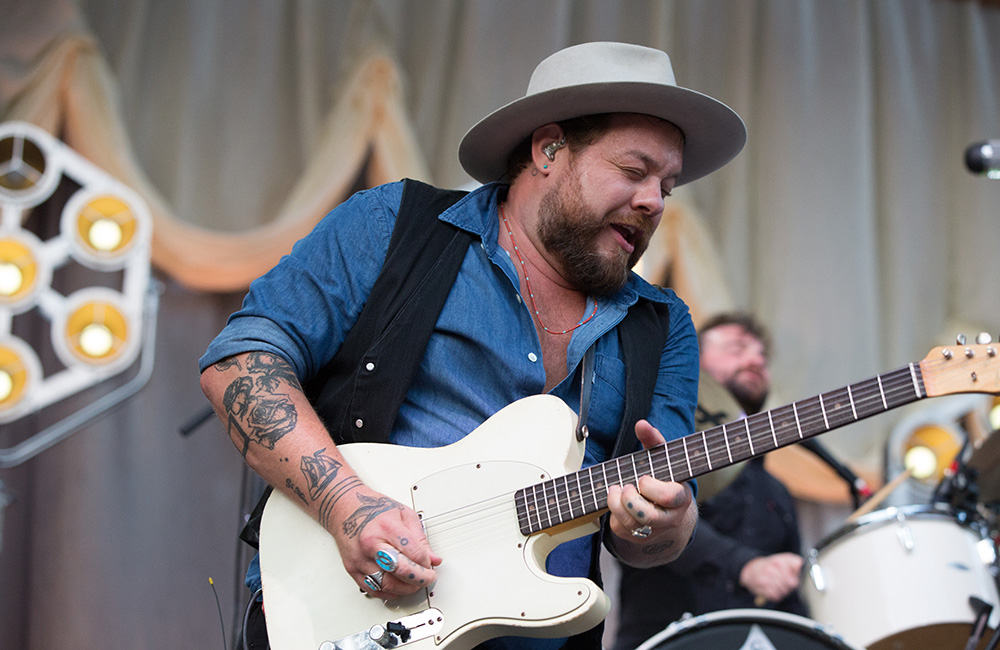

I don’t think we’ve come up with a good solution, so we’re bringing people together who have different opinions. I don’t want that safety to be more guns being in school or there’s only one point of entry. “I think we can all agree that we can’t have children going to school and continue to not have a sense of safety. “With trying to change gun laws, it’s most important to bring people together to start a conversation, because right now we have such a huge divide pretty much anything,” he says. Rateliff felt a dialogue about the issue was needed as much as a benefit concert. Both events fall under the banner of Not One More. All proceeds from the benefit will go to nonprofit organizations dedicated to gun violence protection. The next day, his band, Nathaniel Rateliff & The Night Sweats, will headline a rally and concert at Denver’s Levitt Pavilion.
#Nathaniel rateliff series
13, Rateliff’s nonprofit foundation, The Marigold Project, will partner with a number of organizations, including Moms Demand Action for Gun Sense in America, Students Demand Action for Gun Sense in America, Our Lives Our Vote and the Kendeda Fund, to host a daylong series of workshops and panels on gun violence prevention at INDUSTRY Denver. Rateliff was 20 years old at the time its devastating impact on the community has stayed with him. What to buy: In Memory of Loss is released by Rounder on 7 March.įile next to: William Fitzsimmons, Kurt Wagner, Johnny Cash, Leonard Cohen.Nathaniel Rateliff moved to Lakewood, Colo., from Missouri in 1998, shortly before April 1999’s Columbine High School massacre outside Denver. The truth: Rateliff used to be a truck driver, and his album reeks of eau d' manly sensitivity. The buzz: "A remarkable debut album – it has the weary heart of something made by a man 20 or 30 years older than Nathaniel Rateliff, and is worthy of its place against albums that were" – .uk. You could imagine these songs being hummed by lonesome cowboys on a prairie somewhere in Virginia or wherever it was they had cowboys or prairies. "Like an old-time revival," he sings at one point. There is some multitracking, there are moments when Rateliff harmonises with himself (unless it's one of his band, in which case, apologies), and there are rockier, more Wilco-ish numbers, but the songs are mainly of the plucked, plangent variety. There's a spaciousness to the sound, and some eerie silences, that make the music veer towards dub country – we could draw some comparison between the production and the desolate town of 60 people where the son of devout churchgoers grew up, but we won't. And even though "warm" tends to leave us cold, in this instance the combination of Rateliff's lugubrious hangdog – what is it, baritone? – and the scrape of finger against string somehow works, heat-wise. Like the mainly acoustic music, sparsely enhanced by organ and cello in a Chicago studio by producer Brian Deck (Califone, Iron & Wine, Modest Mouse), it creates an intimate, warm atmosphere for the listener to wallow in.
#Nathaniel rateliff full
But if he's not down he's certainly more inclined to ruminate dolefully on the nature of existence than he is to vamp about sex or whatever it is most rock frontmen do.ĭolefully yet wryly: he's got one of those voices, like Kurt Wagner's, that is deep and rich and full of intimations of a life well (or wearily) lived, that also seems to wink and nod with every knowing croak and sigh. Rateliff isn't, as far as we know, divorced – in fact, he maintains that his three best songs, Oil and Lavender, You Should've Seen the Other Guy, and Shroud, were "written for and inspired by" his wife – and we're not sure about his mental state.

You'd assume he recorded the album, In Memory of Loss, on his own, in a cabin much like the one where Bon Iver recorded For Emma, Forever Ago, or the one where William Fitzsimmons recorded two albums about depression and divorce. There are other instruments used (albeit sparingly), and some of the songs on his 16-track album are more band performances than solo ones, but overall it's a bloke and his guitar, using his voice to tell stories or paint pictures or whatever.

The background: That's a long old lineup, isn't it? And, not to do the other musicians out of a job or anything or to belittle their contributions, it's entirely superfluous because really all you need to know is that Nathaniel Rateliff sings and plays guitar.


 0 kommentar(er)
0 kommentar(er)
